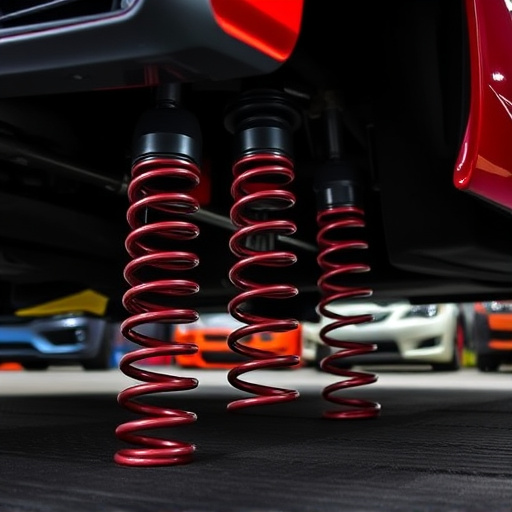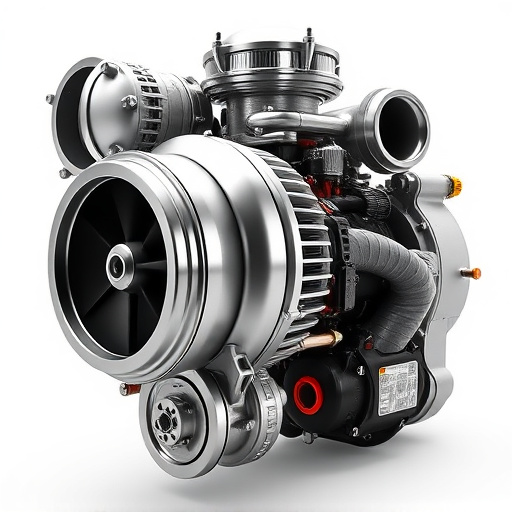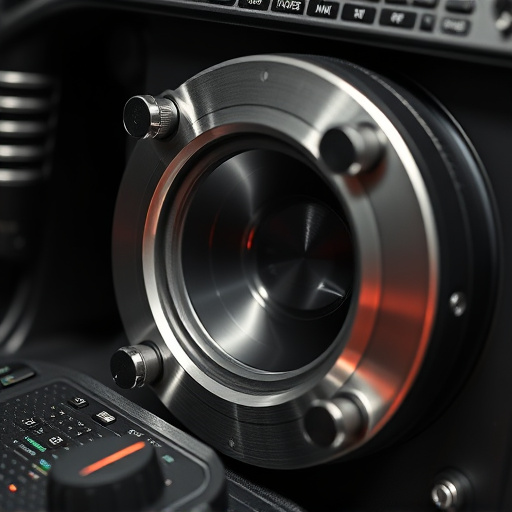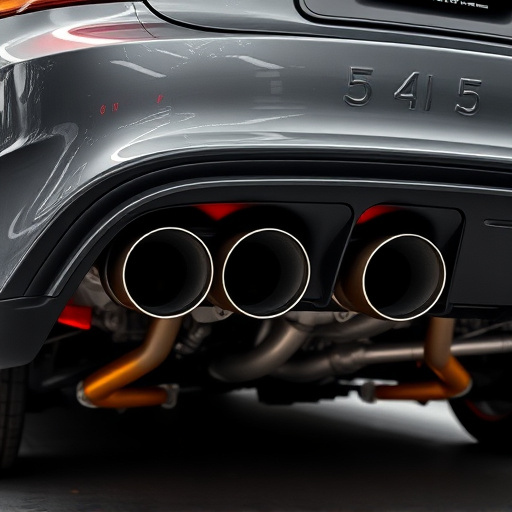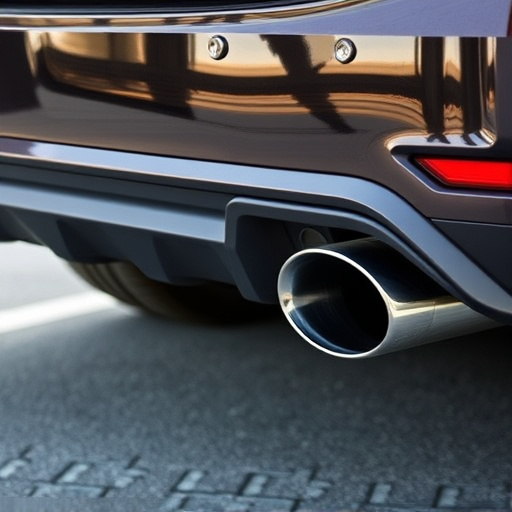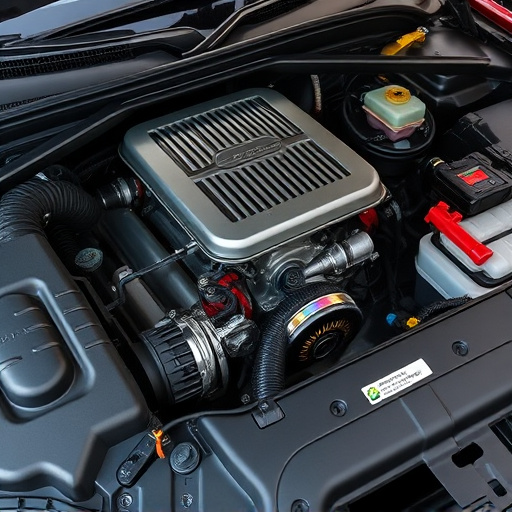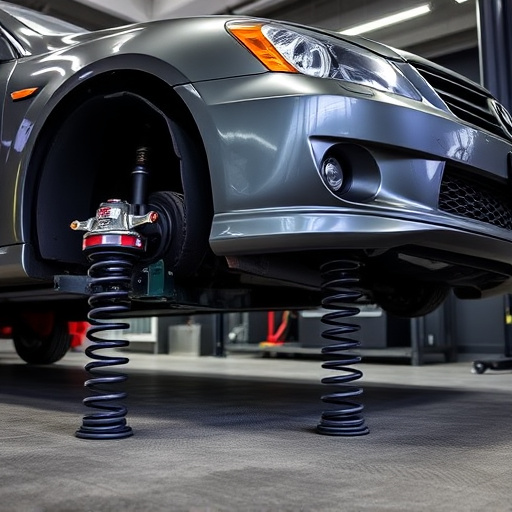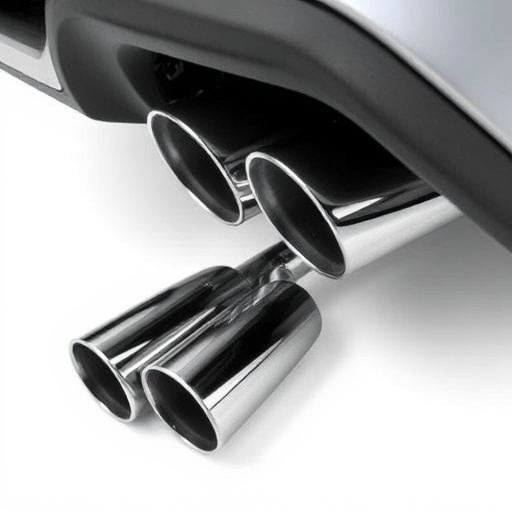Heat soak in engines caused by high temperatures reduces performance, increases fuel consumption, and leads to costly repairs. An intercooler upgrade cools compressed air entering the engine, minimizing heat soak effects. This ensures optimal performance, prolongs sensitive components' lifespans, and enhances overall vehicle efficiency. Upgrading to a high-performance intercooler offers significant advantages in engine capabilities and power delivery, especially in hot climates or during prolonged use, complementing modifications like cat back exhaust systems. Choosing the right intercooler, considering compatibility and types (air-to-air vs water-to-air), is crucial for improved airflow, throttle response, and engine health.
Looking to boost your engine’s performance and efficiency? Consider an intercooler upgrade. This simple yet powerful modification tackles the pervasive issue of heat soak, a major hinderance in engine stability and power delivery. In this article, we’ll explore the science behind heat soak, its significant impact on engines, and most importantly, the benefits and considerations of upgrading to a high-performance intercooler. Learn how to choose the right fit for your engine and unlock the full potential of your vehicle.
- Understanding Heat Soak in Engines and Its Impact
- Benefits of Upgrading to a High-Performance Intercooler
- Choosing the Right Intercooler Upgrade for Your Engine
Understanding Heat Soak in Engines and Its Impact
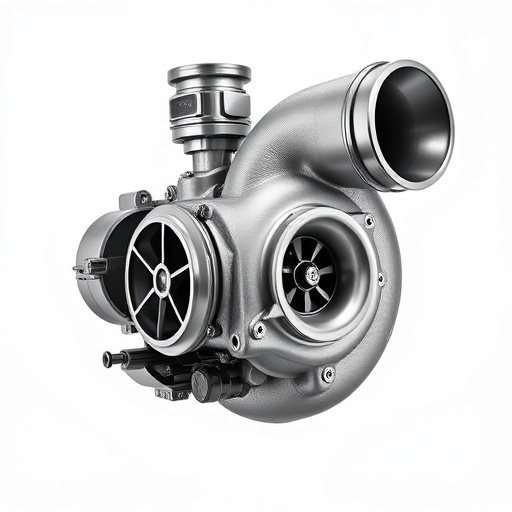
Heat soak in engines refers to the increased temperature of critical engine components due to prolonged exposure to high operating temperatures. This phenomenon can significantly impact performance and efficiency, leading to reduced power output, higher fuel consumption, and potential damage to internal parts such as pistons, valves, and cylinder heads. In extreme cases, heat soak can cause premature wear and tear, requiring costly repairs or even engine replacement.
An intercooler upgrade is one effective strategy to combat heat soak. Intercoolers are components that cool compressed air entering the engine, especially in high-performance vehicles or those with turbocharged or supercharged engines. By lowering the intake air temperature, intercoolers minimize the effects of heat soak, ensuring optimal engine performance and prolonging the lifespan of various components like air filter kits, suspension components, and brake rotors that can be susceptible to damage from excessive heat.
Benefits of Upgrading to a High-Performance Intercooler
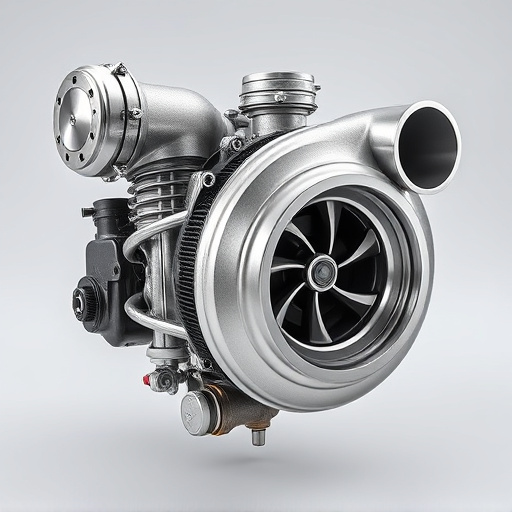
Upgrading to a high-performance intercooler offers significant advantages for vehicle owners looking to enhance their engine’s capabilities and overall performance. One of the primary benefits is the reduction in heat soak, which can significantly improve engine efficiency, especially during prolonged use or in hot climates. By efficiently cooling the compressed air entering the engine, this upgrade allows for better air intake systems, enabling a more consistent and powerful combustion process.
This simple yet effective modification directly contributes to improved vehicle performance and drivability. With a high-performance intercooler, drivers can expect smoother power delivery, quicker turbo response, and increased reliability in their car’s engine. Moreover, it complements other modifications such as a cat back exhaust system, ensuring optimal performance across the entire powertrain setup.
Choosing the Right Intercooler Upgrade for Your Engine
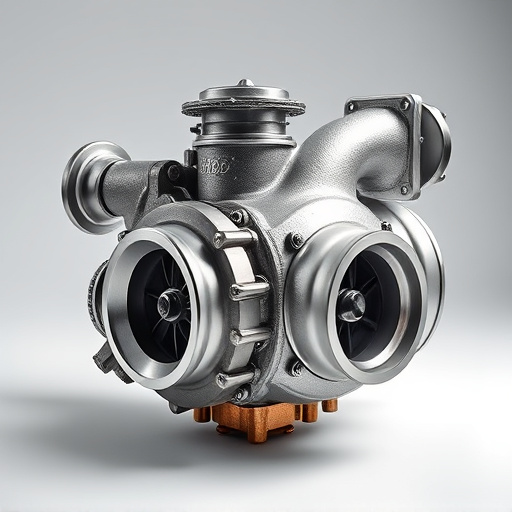
Choosing the right intercooler upgrade is a crucial step in reducing heat soak and enhancing your engine’s performance. It’s essential to consider factors like your vehicle’s make, model, and year to ensure compatibility. Additionally, understanding the differences between various types of intercoolers—such as air-to-air and water-to-air—will help you pick the most suitable option for your needs.
When selecting an intercooler upgrade, remember that it often works in tandem with other modifications like cold air intakes and cat back exhausts. These components collectively contribute to improved airflow and engine cooling. Opting for high-quality intercoolers with well-designed heat exchange cores and efficient air flow can significantly mitigate heat soak, leading to better throttle response and overall engine health.
Upgrading to a high-performance intercooler can significantly reduce heat soak in engines, enhancing overall efficiency and performance. By choosing the right intercooler upgrade tailored to your engine’s specific needs, you can experience improved cooling capabilities, leading to better throttle response and increased horsepower. Embrace this simple yet effective modification to unlock your engine’s true potential and enjoy a more robust and responsive driving experience.

